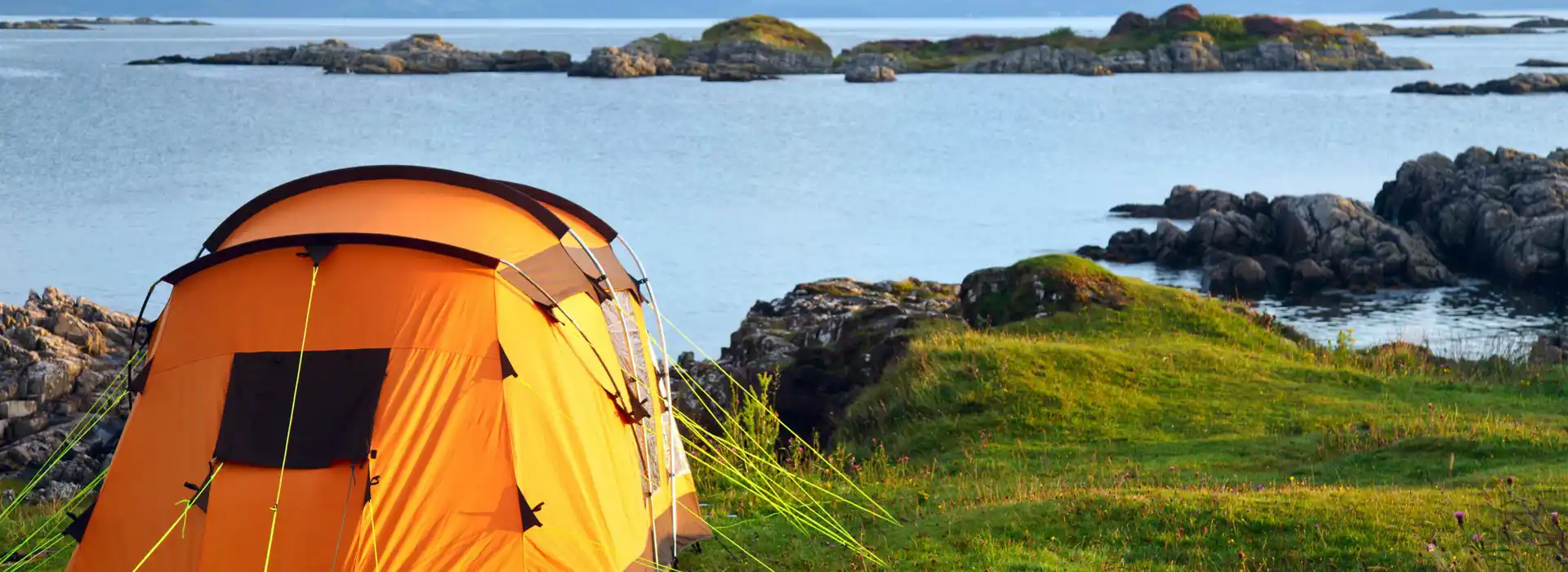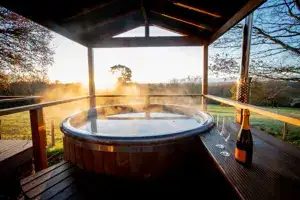The humble tent peg comes in a bewildering variety of different types, materials and sizes. It's all designed to give you plenty of choice and the opportunity to find a peg that fits the surface you're working with perfectly. Here are some of the most popular types with a handy and clear explanation of exactly what they're like and what type of surface they suit. There really is a peg to fit any and all your camping needs – so make sure you’re fully equipped and ready to go for the conditions you will be facing.
Choosing tent pegs
The Standard Roundwire Peg is the most used peg and is available in a range of lengths. They are ideal for grass but can be easily bent on stones beneath the surface. Work along the basis that the longer, thicker and more expensive pegs are always better.
The Skewer Peg is similar to the roundwire peg, but twisted to give extra ground grip. Skewer pegs also come in different lengths.
Ripple Pegs are perfect for those camping on sand and gravel surfaces. They provide a greater surface area and more drag resistance than a standard wire peg, which also works for medium to soft ground such as grass.
Delta Pegs are the only viable options for extreme conditions as their design digs deeper into the ground when put under strain. Pricey but worthwhile, mountaineers swear by delta pegs.
Plastic Pegs give good security but can only be used in soft ground that contains no stones. They are renowned for their brilliant grip on guy lines and the main tent.
A Groundsheet Peg is small, lightweight and designed to hold your footprint groundsheet to the earth without leaving a raised profile that could be uncomfortable.
Halfround U Pegs are renowned for their strength and are designed to be used in a variety of ground conditions. They normally come in a variety of sizes.
Rock Pegs are designed to act like a giant nail for stone filled or hard ground. They can be put into the ground with a normal hammer and are ideal for camping on rocky ground.
Screw Type Rock Pegs have an added screw thread on the peg to increase stability and grip. These tent pegs turn if they hit a stone, meaning they do not bend.
Screw Pegs can be easily screwed into the ground with a household cordless drill adaptor and come in a variety of sizes – perfect for the fuss free camper!
Biodegradable Pegs are also now available, which degrade naturally over time if you do accidently leave them behind. Ideal for festivals, but they take a while to insert.
Tent Stakes are often used with backpacking tents and offer a lightweight solution without compromising on security.
Lastly, the Harpoon Peg gives brilliant grip on medium and soft ground while providing no drag.
Your comments about this article
Alan
21/04/2019 21:15I was trying to find a site where I can take a tourer onto a site and leave it there. I would hope they would store it over winter and over the season I could just go to it as and when I wanted to. I am willing to pay an annual site fee to include electric and gas. Can you advise as I am a novice in this area
Martin Smith
22/04/2019 09:01Have a look at our listings of 250+ sites offering seasonal pitches Alan :-)
- Why go camping?
- Camping statistics
- How to plan a camping trip
- Equipment and gear: what to take camping
- How to choose a campsite
- Camping etiquette and campsite rules
- Choosing a pitch and setting up camp
- Breaking camp
- How to keep warm when camping
- How to avoid midges, wasps and other insects while camping
- Camping with dogs
- Camping with campfires
- Camping tips, hacks and tricks
- Beware carbon monoxide poisoning
Download our list of everything of you need to remember for the perfect camping trip!
DownloadIn the UK, you don't have to travel far to see some amazing sights.
We're lucky enough to have world-besting landscapes, history and wildlife right on our doorstep.
Where will you explore next?
Explore Destinations


